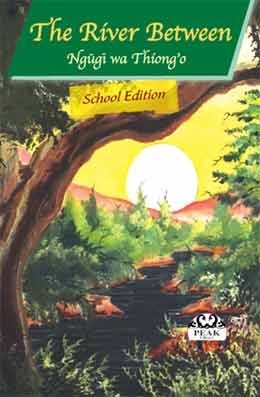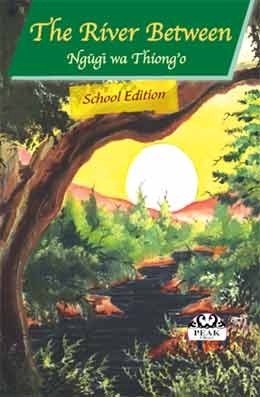Kenya’s foremost writer Ngugi wa Thiong’o is among 14 contenders for this year’s Man Booker International Prize. Worth £60,000 to the winner, the prize is awarded every two years to a living author who has published fiction either originally in English or whose work is generally available in translation in the English language.
Ngugi is the only African writer in the list of nominees, who include Nobel winner V.S. Naipaul. The nomination alone is enough proof that Ngugi’s works are rated among the world’s best.
Other nominees for the prize are Peter Carey (Australia), Evan S. Connell (USA)
Mahasweta Devi (India), E.L. Doctorow (USA) , James Kelman (UK), Mario Vargas Llosa (Peru), Arnošt Lustig (Czechoslovakia), Alice Munro (Canada), Joyce Carol Oates (USA), Antonio Tabucchi (Italy), Dubravka Ugresic (Croatia) and Ludmila Ulitskaya (Russia).
This is the third edition of the prize, which was won, in 2005, by Albanian Writer Ismail Kadare, and Nigerian Chinua Achebe, in 2007.
“By honouring Achebe they have redressed what is seen in Africa – and beyond – as the acute injustice that he has never received the Nobel prize, allegedly because he has spent his life struggling to break the grip of western stereotypes of Africa,” said the Guardian in 2007.
The winner is chosen solely at the discretion of the judging panel; there are no submissions from publishers.
Ngugi, whose writing career started 45 years ago decided to stop writing in English when he was detained without trial in 1977. He henceforth decided that would write in Gikuyu. He wrote his latest book Wizard of the Crow (Murogi wa Kagogo) in Gikuyu and later translated it in English.
The book takes a critical look at the often hypocritical relationship between Africa and donor countries. The book appears to suggest that donor funds are actually the main contributors to corruption and dictatorship in Africa, thereby fuelling underdevelopment in the continent.
His other book The River Between is currently a literature set book studied by secondary school students in the country. Ngugi is also a renowned essayist, with Decolonising the Mind: The Politics of language in African Literature and Moving the Centre: The Struggle for Cultural Freedom, receiving international acclaim.
Ngugi was born on 5 January, 1938 in Limuru. He attended Makerere University in Uganda and Leeds University in the UK.
During his tenure as a lecturer at the University of Nairobi, Ngugi was at the center of the politics of English departments in Africa, championing the change of name from English to simply Literature to reflect world literature with African and third world literatures at the center.
The performance of I Will Marry When I Want, a play written with the late Ngugi Wa Mirii, at Kamirithu in Limuru landed him at the Kamiti Maximum prison without trial.
After his release in 1982, he fled to exile, first in Britain and then to the US and only returned to Kenya in 2004. On his return him and his wife Njeeri were attacked by gunmen at their hotel in Nairobi.
In 1992 he became a professor of Comparative Literature and Performance Studies at New York University, where he held the Erich Maria Remarque Chair. He is currently a Distinguished Professor of English and Comparative Literature as well as the Director of the International Centre for Writing and Translation at the University of California, Irvine.
The winner of this year’s Man Booker International Prize will be announced in May 2009, and the winner will be presented with their award at a ceremony in Dublin on 25 June 2009.
Tag: Ngugi wa Thiong’o
Ngugi’s book still relevant 42 years on

More than 20 years after Ngugi wa Thiong’o’s book The River Between was unceremoniously bundled out of the Kenyan school system, it is now set to make a major comeback after the Ministry of Education approved it as a compulsory set book in literature studies in the Kenya Certificate of Secondary Education (KCSE).
Many will be the questions asked as to whether Ngugi’s early works – The River Between included – are still relevant in today’s dispensation. A careful analysis of the book and the issues and themes it addresses reveals that they are still as relevant as they were those many years back.
Just like Chinua Achebe, Ngugi’s early writings dwelt at length with the clash of the white man’s culture with that of the Africans. Also addressed in those writings is the issue of oppression.
As far as oppression is concerned the author concerns himself with the methods the oppressor employs to achieve his ends and how the oppressed coped, and the means they employed to counter the oppression.
Colonialism, as was practised then might have come to an end, but the world we live in still remains an unjust place. The West, courtesy of their superior weaponry and improved economic status are still very much oppressing the poor nations particularly in Africa.
Closer home, oppression among ourselves – African against African – is even more pronounced than that of the West against Africans.
Kenya, as a country might have rid itself of colonialism more than 40 years ago, but the issues people used to moan about in the colonial days – poverty, landlessness, oppression, unequal distribution of resources, lack of education – are still burning issues today.
Thus it can be argued that when the white oppressors exited the scene they were replaced with more vicious black oppressors. Pupils studying the book would draw important lessons from how Africans today have coped with the Western Culture in relation to their own African cultures.
A casual look at the youth of today – who will be studying the book – reveals that many of them have completely abandoned their African roots and are busy trying to ape the Western culture, sometimes blindly. Evidence of this is in the way they dress, talk and how they relate with each other.
Thus the book will offer them an opportunity to examine themselves.
While The River Between, when it was written, mainly dwelt with the contact point of the two opposing cultures, the youth of today are the perfect examples of the after- effects of that culture clash. Today, most of them cannot construct a coherent sentence in their mother tongues.
It would be interesting for those studying the book to examine the rapidly emerging Sheng’ culture, which is today a much preferred means of expression by the youth. Simply put the Sheng’ generation in Kenya is a hybrid of Western and Kenyan/Swahili culture.
Looking at today’s youth some comparisons can be drawn between them and Waiyaki a leading character in The River Between, locally published by EAEP. Drawing from Mugo wa Kibiru’s prophecy, Waiyaki’s father, Chege, implored the young man to go the white man’s school and learn their ways. Chege knew the white man could only be countered by learning his ways.
Just as culture is dynamic, and is bound to change, Waiyaki is well aware that there are some aspects of the white man’s culture that are not as bad as they were made to appear, and therefore could be assimilated into the African culture. Thus Waiyaki is entrusted with the unenviable task of trying to harmonise the two cultures, unite the two opposing camps and come up with a model that would be acceptable to both, a task he utterly fails to accomplish.
Waiyaki might have failed in his gigantic task in the book, but evidence of the Sheng’ generation is enough testimony that Waiyaki’s efforts might not have been in vain after all. In his quest, Waiyaki was vilified by both sides. The same can be said of the Sheng’ generation. Aren’t they also being vilified by both sides of the divide, especially when it comes to matters of language?
Today Female Genital Mutilation (FGM) is a hot issue within government, religious and NGO circles. Sustained battles are being waged in communities that still cling to the ancient culture, with varying results.
The tragic character of Muthoni, in the book, and the tribulations she underwent as still are relevant today as they were when Ngugi wrote the novel. Muthoni, in spite of her parents having been converted to Christianity, had a burning ambition to undergo the rite, so as “to become a woman.”
She underwent the ritual, eventually dying as a result of the attendant complications. There still many Muthonis today as they were then. The issue of symbolism, as employed by Ngugi in the book, is one pupils studying the book will especially need to take into consideration. Such symbolism is brought into sharp focus with Muthoni’s death.
What did her death symbolise? The death of African traditions and customs? That is a debatable point.
Religion is another issue Ngugi never tires tackling in his works. In The River Between, he examines African traditional religions alongside Christianity, which was introduced by the white man. Today, roles appear to have changed. Christianity is on the rise in Africa, while diminishing in the West. Still in spite of their new-found faith, Africans will still revert to their traditional beliefs, whenever it suits them. I think The River Between is a valuable text for our children to study in schools. What is more, they will be interacting with ideas from one of their own.
You can order the book here

